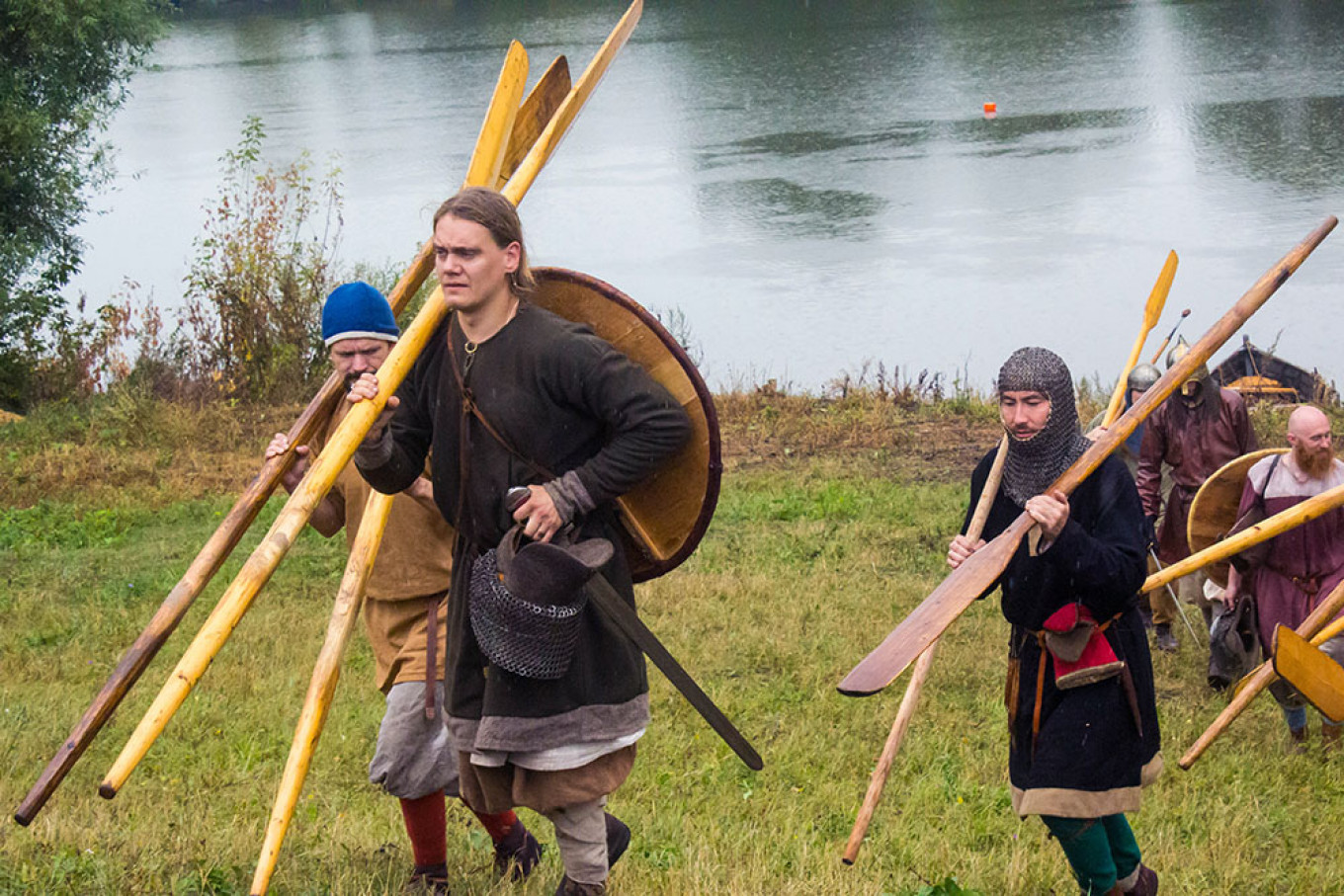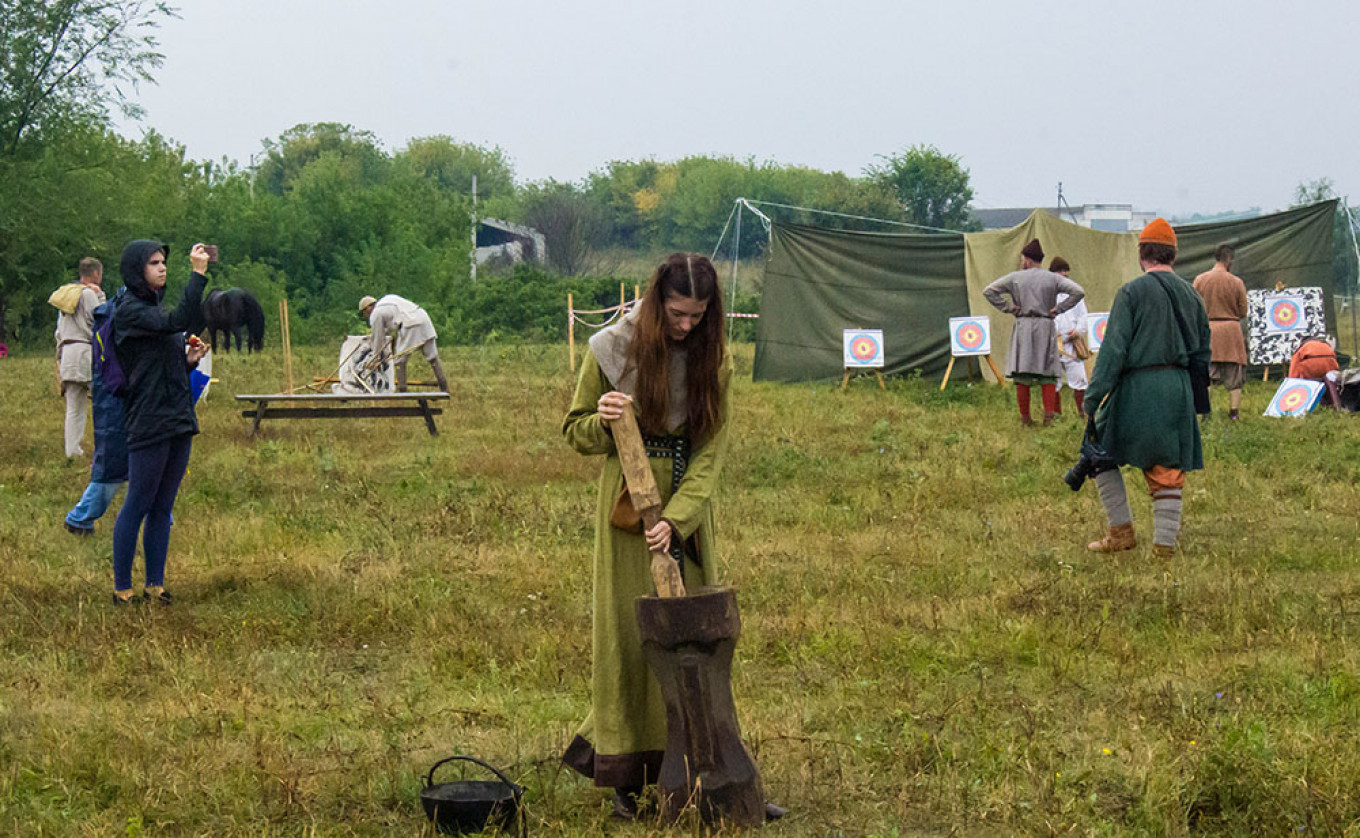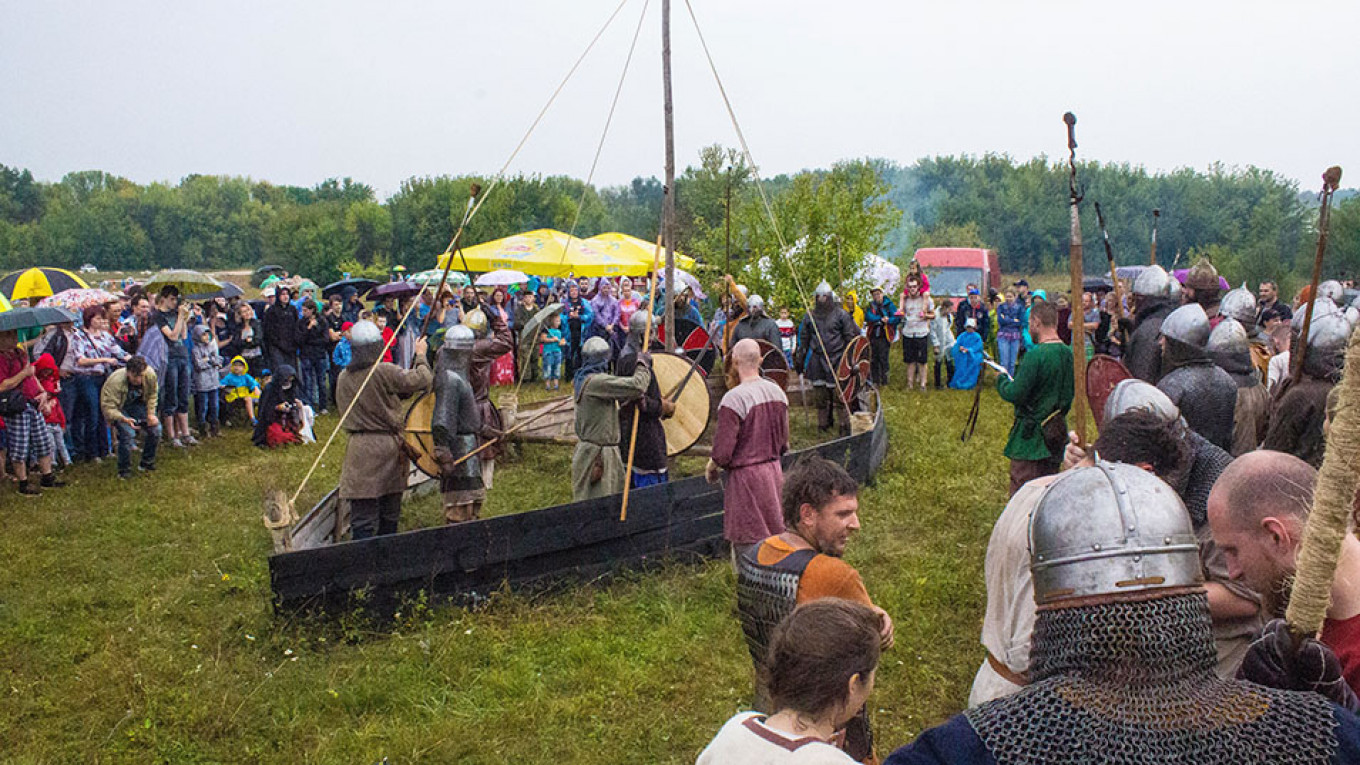Flags flutter above linen tents, musicians play ancient melodies on old musical instruments, craftsmen peddle their wares… This might look like the film set for the latest television series, but it’s actually a historical reenactment festival called Ladeinoye Pole that has been held every year since 2007 in the Lipetsk region, about 500 kilometers to the southeast of Moscow. The stars of the festival are the medieval ships that played such an important role in the lives of Russia’s early inhabitants.
The first year the festival was held, Pavel Semyonov, head of the Spear military-historical club, and his fellow members started learning the craft of shipbuilding. The next year they built their first ship. Today they have five medieval ships consisting of both sailboats and karve ships, the latter made by reenactors in the northern Scandinavian tradition of the 10th century.
Yury Vavilov, a member of the historical club Rarog (Vladimir region) has been coming from the very start. “The ships are the draw. We have a rare chance to row on replicas of medieval ships. First they teach you to sail a ship, and once you’ve mastered that, you can take part in the regatta.”
And when you become really skilled, you can sail farther afield. For ten years, the reenactors have plied the river routes in the south.

“We have been in the Azov Sea, the White Sea, the Volga. This is how we test our skills,” Semyonov said. “Once we got caught in a storm, sailed to shallow water and patched up leaks. This year we’re building an 18-meter ship. Next year we are going to sail to the Black Sea.”
Sailing is a family affair. Yekaterina Lomteva and her husband Andrei represent the Rarog club. “Women don’t just cook,” Yekaterina said. “I’m interested in the festival so I can take part in the regatta. I’m an oarsman.”
This year over 300 reenactors from all over Russia attended the festival. On most days of the festival, the participants go about their business without any visitors, but one day a year is “guest day.” Despite the rain, hundreds of people came to get a glimpse of the past. They lined up along the riverbanks to watch the regatta competitions on Bystraya Sosna River. They were also treated to demonstrations of sailing prowess: rowing, mooring to the land, putting down the anchor, making sails, and other skills that men possessed 800 years ago.

Battle skills were displayed on a medieval ship hauled up on land. While men fought on board ship, children played traditional games, and the folk music groups “La Verden” and “Ammana Dorcha” played bagpipes, tweeters, pipes, and drums. Some participants taught tourists a few steps of medieval dances.
All the reenactors, no matter what age, wore costumes that were authentic down to the very last detail. This isn’t just for the armor and clothing competitions. They do it to feel part of the era.
Near the tents, women cooked porridge, soups and meat using ancient recipes. Visitors could try their hand to ironing, washing, and carrying water using a shoulder yoke. All the tools and objects they use were found by the reenactors in different villages of the Lipetsk region.
It’s not easy. “I would not want to be in the place of a medieval woman!” Viktoria Danilova said. She came to the festival with her husband Alexei and tried carrying the shoulder-yoke. “The buckets were empty, but the shoulder-yoke was heavy! Imagine how heavy it would be if the buckets were full!”
The festival does, however, provide some modern conveniences. Viktoria's husband said, “At the festival, the past is mixed with the present. I paid for the hatchet with a credit card and ate a pie with sausage, but people in medieval clothes were walking by. It’s wild!”
For more information about historical reconstructions, see the Rusborg site.
A Message from The Moscow Times:
Dear readers,
We are facing unprecedented challenges. Russia's Prosecutor General's Office has designated The Moscow Times as an "undesirable" organization, criminalizing our work and putting our staff at risk of prosecution. This follows our earlier unjust labeling as a "foreign agent."
These actions are direct attempts to silence independent journalism in Russia. The authorities claim our work "discredits the decisions of the Russian leadership." We see things differently: we strive to provide accurate, unbiased reporting on Russia.
We, the journalists of The Moscow Times, refuse to be silenced. But to continue our work, we need your help.
Your support, no matter how small, makes a world of difference. If you can, please support us monthly starting from just $2. It's quick to set up, and every contribution makes a significant impact.
By supporting The Moscow Times, you're defending open, independent journalism in the face of repression. Thank you for standing with us.
Remind me later.






